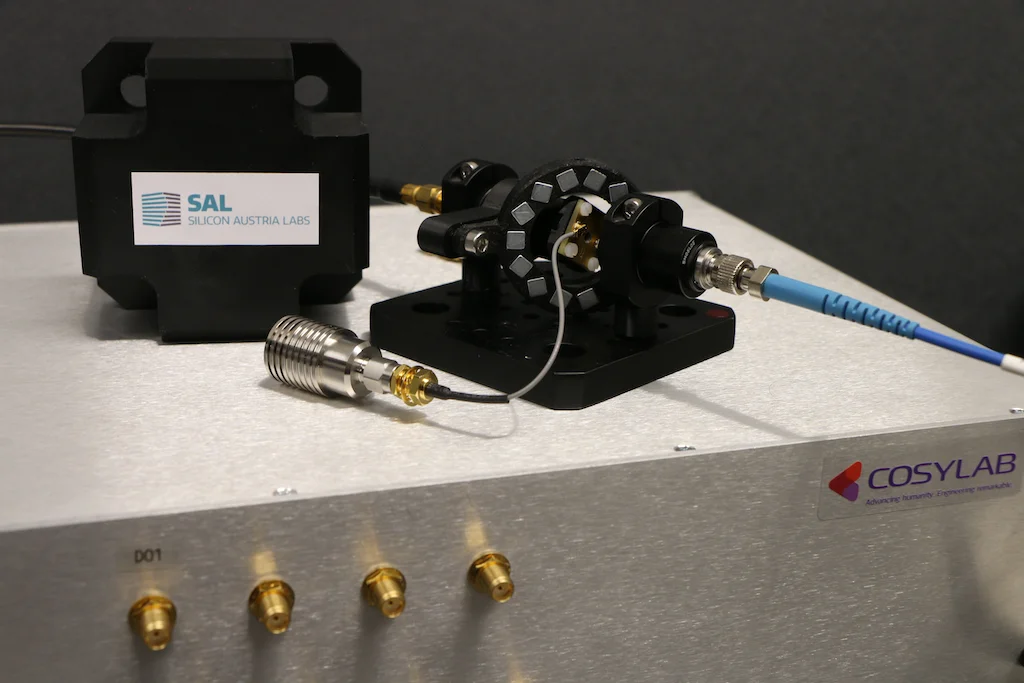Insider Brief
- Researchers developed a quantum computing pipeline to enhance drug discovery, promising improved efficiency and accuracy.
- The pipeline uses simulations and calculations to address drug design challenges, validated by studies on anticancer drugs beta-lapachone and sotorasib.
- The team that conducted the study included scientists from Tencent Quantum Lab, China Pharmaceutical University, and AceMapAI Biotechnology.
A team of Chinese researchers report that quantum computers may one day serve as the backbone of a drug pipeline that that could potentially revolutionizing drug design, which could transform the pharmaceutical industry.
According to the South China Morning Post (SCMP), the researchers explored a drug pipeline — a systematic process or sequence of steps in the design, discovery and development of new drugs — that uses a quantum computer for simulations and calculations for addressing various challenges in drug design, such as the interaction and bonding of drugs with targets and the energy required to break bonds within a drug.
This advance, which the team detailed in a paper published in the peer-reviewed Nature Portfolio journal Scientific Reports, could significantly improve the efficiency and accuracy of the drug discovery processes.

“Quantum computing, with its superior computational capabilities compared to classical approaches, holds the potential to revolutionize numerous scientific domains, including pharmaceuticals,” the research team wrote, as reported by SCMP.
The team, which consisted of scientists from Tencent Quantum Lab, China Pharmaceutical University, and AceMapAI Biotechnology, highlighted that traditional computational chemistry methods are not exact and become increasingly costly as the scale of computing grows. Quantum computing, which leverages quantum mechanics, could overcome these limitations.
However, the researchers noted that quantum computing’s role in drug discovery has primarily been limited to conceptual validation, with minimal real-world integration. To address this gap, the team developed a hybrid quantum computing pipeline specifically targeted for practical drug discovery applications.
“Our results demonstrate the potential of a quantum computing pipeline for integration into real-world drug design workflows,” the researchers stated, as reported by SCMP.
Case Study Validation
They validated their approach through two case studies addressing real problems in drug design.
In their first case study, the team aimed to determine the energy required to cleave bonds in a prodrug, which is a drug that activates inside the body. The researchers noted that prodrugs are an important part of drug research because they activate at certain places in the body, lowering side effect risks, and, ultimately, making treatments safer and more effective. In this study, the team focused on the anticancer prodrug beta-lapachone, comparing their quantum computing results with a 2022 study that used classical computing methods. Both analyses concluded that the drug could undergo a spontaneous reaction within biological organisms, demonstrating the effectiveness and versatility of the quantum computing pipeline.
“Our results demonstrate the effectiveness of quantum computing… as well as the versatility and plug-and-play advantages of our pipeline,” the researchers noted, according to SCMP.
The second case study involved the anticancer drug sotorasib, a KRAS inhibitor targeting a specific KRAS gene mutation, G12C. Prior research has implicated the KRAS gene mutation in many cancers and has shown itself to be notoriously difficult to treat. Effective inhibition of this mutation could lead to significant advancements in the treatment of various aggressive cancers. In the study, the team used a hybrid computing method, starting with a quantum emulator before moving to a quantum computer, to simulate the drug’s interaction with its target. They observed a strong covalent bond formation, providing insights into the drug’s efficacy.
“This understanding is pivotal for the rational design of future inhibitors targeting similar mutations,” the researchers said in SCMP, adding that their work could accelerate drug discovery by improving the speed and accuracy of computational methods.
The team emphasized that their pipeline is designed to be user-friendly, even for drug design experts without a background in quantum computing.
“By democratizing access to this advanced pipeline, we lay the groundwork for expanded collaborative endeavors within the scientific community, thereby accelerating the translation of quantum computing power into tangible therapeutic outcomes,” the researchers said, as reported by SCMP.
Not Ready Quite Yet
Despite its promising report, using quantum computers for current drug discovery faces significant limitations. For example, quantum computing is still plagued by longer computational times and errors, which impede its accuracy and efficiency in drug discovery. This integration of quantum computing into real-world drug design also remains largely conceptual, with minimal practical application. The researchers acknowledge that further improvements are necessary to enhance the reliability and practicality of these quantum computing methods for widespread use in pharmaceuticals.
To achieve this type of quantum-powered drug discovery, advances would be needed to reduce computational errors and shorten processing times, enhancing the reliability and efficiency of quantum algorithms. Additionally, scalable and robust quantum hardware must be developed to handle complex simulations and large datasets required for comprehensive drug design. Improved integration with existing drug discovery workflows and user-friendly interfaces will also be crucial to enable broader adoption by pharmaceutical researchers.
The team included Weitang Li, Chenji Zou, Kunliang Bu, Maochun Dai, Jie Yue, and Shengyu Zhang from Tencent Quantum Lab; Zhi Yin, Xiaoran Li, Dongqiang Ma, Shuang Yi, and Zhenxing Zhang from AceMapAI Biotechnology; Yuzong Chen and Xiaojin Zhang from AceMapAI Joint Lab, China Pharmaceutical University; and Zhi Yin from the School of Science, Ningbo University of Technology.















